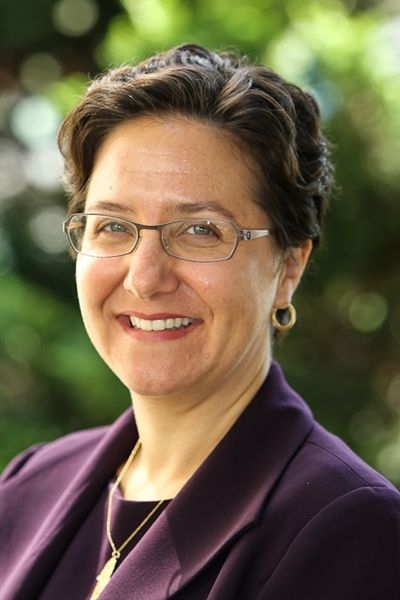No Easy Way Out of Reconstructing Raqqa
Editor’s Note: This piece originally appeared on Markaz.
Now that ISIS’s rule in Raqqa is over, both locals and wary external observers are wondering what comes next. The United States government appears intent on avoiding another costly, lengthy, and possibly ineffective Middle East reconstruction mission. Yet it must also consider the consequences of underinvestment and too swift a disengagement.
Published by The Lawfare Institute
in Cooperation With

Editor’s Note: This piece originally appeared on Markaz.
Now that ISIS’s rule in Raqqa is over, both locals and wary external observers are wondering what comes next. The United States government appears intent on avoiding another costly, lengthy, and possibly ineffective Middle East reconstruction mission. Yet it must also consider the consequences of underinvestment and too swift a disengagement.
If the U.S. national interest is indeed to prevent a resurgence of jihadi violence in Raqqa Governorate and other formerly ISIS-controlled territories, then Washington must rethink its resistance to reconstruction efforts. It must work to ensure that even its limited engagement in stabilization takes account of the exclusionary governance and societal grievances that fomented state breakdown in Syria and Iraq and created an environment in which ISIS could thrive.
The Trump administration has committed itself to minimal, short-term stabilization efforts in and around Raqqa and is pushing back clearly on calls for more. As Special Presidential Envoy for the Global Coalition to Counter ISIS Brett McGurk told reporters in August:
This is not reconstruction; it’s not nation building. Stabilization is demining. …rubble removal so that trucks and equipment can get into areas of need. It means basic electricity, sewage, water, the basic essentials to allow populations to come back to their home.
…Now, sometimes we meet with local councils and they say, ‘We really want you, the United States, to help us with the—you’re going to run the hospitals, aren’t you? You’re going to run our school system.’ And no, we’re not—we’re not doing that. We’ve learned some lessons and we’re not very good at that, and also that is not our responsibility. We will do basic stabilization.
McGurk’s reticence is understandable, but it’s also short-sighted. Keeping U.S. forces (or development workers) in Syria after the anti-ISIS mission is over is risky both politically and in security terms. Western officials don’t want to spend taxpayer dollars to rebuild a country destroyed by its own brutal leadership. Moreover, years of toil in Iraq and Afghanistan leave many policy officials and analysts skeptical about how much the United States can actually do to achieve stable, accountable, inclusive governance in countries emerging from communal conflict and extremist violence.
These concerns notwithstanding, what happens next in Raqqa is just as important as its liberation from ISIS. The fate of people in post-ISIS Raqqa could either strengthen local commitments to resist extremist appeals or make them wonder whether ISIS wasn’t right all along. Raqqa is also a potential ethnic flashpoint: a traditionally Arab city, liberated by a Kurdish-led force and slated, according to McGurk, to be led for the foreseeable future by an unwieldy, U.S.-assembled “representative” council. But Raqqa’s importance also makes its liberation an opportunity for the United States and its partners to engage differently on reconstruction, in ways that avoid the mistakes of the past and that emphasize the rebuilding of human infrastructure, more than physical infrastructure.
Getting Reconstruction Right
The Iraq experience offers deeper lessons than skepticism about what reconstruction can achieve: Failure to attend to governance, civil society, and restorative justice may simply recreate the conditions that generated conflict in the first place and may facilitate the return of extremist groups. If we are to avoid these mistakes in Raqqa, the United States must go beyond short-term stabilization and seek to help the residents of Raqqa Governorate become more resilient against appeals to violence and extremism.
Our colleague Steven Heydemann recently offered some overarching guidelines for reconstruction in Syria designed to avoid reinforcing the grievances and governance failures that generated violence: Bypass Assad’s central government, go local, go small, and go slow. Following two workshops on stabilization and reconstruction in the Middle East that we convened with colleagues at the World Bank, we offer the following additional ideas:
Don’t Overpromise
Syrians have suffered tremendously in a civil war that became a fierce proxy conflict for regional and international powers. Many Syrian civilians took fatal risks to protest and take up arms against the Assad regime because they thought they had international support for their struggle. During the course of the civil war and the anti-ISIS campaign, America has waffled in its diplomatic approach to the conflict, in its provision of military support to groups inside Syria, and in providing civilian support to local communities in ways heavily shaped by local and regional politics. The United States today has an interest in stabilizing Syria, but both political and policy reasons constrain its readiness to invest major resources in that effort. In light of this complex and checkered legacy, the U.S. government has a moral obligation as well as a political interest in making clear to local partners what they can expect from Washington, and what they cannot.
Reconstruction Aid Doesn’t Have to Flow from the Top Down
Typically, international stabilization and reconstruction focuses on rebuilding state institutions that have broken down in the face of civil war. Yet rebuilding central institutions, even at a local or governorate level, also creates a central locus of power and money, making the local government a prize to be fought over by rival local leaders. What if international donors instead applied some of their development lessons from non-conflict zones to reconstruction—by providing vouchers to citizens and making local leaders compete to attract resources from those they are meant to serve? This would push contending political factions to address community needs and build coalitions to acquire a greater share of the reconstruction bounty—changing the game to one that better serves citizens and creates stronger accountability for local leaders.
Don’t Accelerate the Disintegration of Syria.
At the same time, decentralization should not push Syria toward formal partition. Syria today is divided, in practice, into regime-held areas in which humanitarian and later reconstruction aid flows through Damascus, and opposition-held areas in which aid flows across external borders to local militias and other actors. As the fighting winds down, the U.S. government must contemplate the implications of its aid flows for political outcomes in the country. Decentralized governance clearly offers the best hope for a stable Syria, as rule from Damascus was corrupt, exclusionary, and incompetent prior to the war, and many Syrians will violently resist a return to the status quo ante. Although some analysts argue for a formal partition of the country into ethnic units, Syria’s complex demography and cosmopolitan history do not support such an outcome, nor would major regional powers accept it.
In practice, the United States must take care that its reconstruction efforts in Raqqa Governorate do not inadvertently prejudge the relationship between local and central authority in Syria. American aid and engagement can help local forces balance Damascus’s power and can help construct legitimate, broadly supported local authorities that can represent local interests in later political negotiations. However, unless the United States is clear and intent on a specific outcome in Syria’s to-be-determined political “transition,” it should try to avoid closing doors in local authorities’ engagement and perhaps eventual rapprochement with the central government. One first step could be to follow the precedent of the Raqqa Civilian Council to let schools under its control use textbooks printed by the central state.
Map Stabilization Efforts onto Existing Power Relations
Even early stabilization efforts have inherently political effects, rebalancing power rivalries established both before and during the fighting. At the local level alone, the assignment of responsibility for power plants, the allocation of funds for building contracts, the assembly of local police forces, and the return of displaced people to their homes all shift power and resources in an environment of fierce competition. While the U.S. military has a laudable “can-do” approach to swift establishment of basic security and services, handing reconstruction resources and authorities to whomever promises the quickest results may not actually produce the most stabilizing outcome.
Revenge and power competition make a sure recipe for disaster. To prevent it, the United States can start by clearly delineating its understanding of which militias, tribal leaders, and other local actors stand as “winners” and “losers” in the liberation of Raqqa, and how American and other coalition support during the fighting has shaped that power balance already. American and other development actors can use this knowledge to avoid implementing projects in ways that reinforce undesirable outcomes (for example by rewarding bad actors, or excluding valuable partners from projects), to structure equitable representation in local rebuilding efforts, and to support dialogue and coalition-building among local political rivals. McGurk’s ready-built interim governing council should be seen in this context—a council of exiles that may have little local support, and that is ultimately beholden to the Kurdish militias that did the bulk of the fighting and now occupy Raqqa. Making that council the hub for U.S.-provided assistance and U.S.-funded stabilization efforts may create a dynamic whereby council members care more about access to U.S. funds than about serving local needs in an equitable manner.
Look Out for Spoilers
These dynamics easily contribute to the rise of spoilers, who decide that their own interests are best served by interfering with local stabilization and reconstruction efforts. Those who were part of the liberation campaign, for example, will be hard-pressed to work with rivals who also want a stake in reconstruction—but if reconstruction proceeds in a winner-take-all manner, those left out will have no stake in preserving the peace. We are already witnessing the latter competition between the Raqqa Civilian Council, backed by the Kurdish-Arab Syrian Democratic Forces (SDF), and the Raqqa Provincial Council, supported by Turkey and the Syrian National Coalition (SNC).
Don’t Neglect Transitional Justice
Often, international actors advise pushing off transitional justice efforts into a later phase of post-conflict reconstruction, or making it subject to a political settlement to the war that will be negotiated in some foreign capital at some later date. But without attention to justice, well-meaning stabilization efforts can easily exacerbate grievances in traumatized populations, giving spoilers easy opportunities for trouble-making and raising the risks for a return to violence. For example, a short-term approach to stabilization like that articulated by McGurk might focus on returning people to their home towns without reference to who displaced them, how or why, and what the relations between those groups might be once residents come back. Mutual suspicion between those who (willingly or unwillingly) fled ISIS rule, and those who (willingly or unwillingly) lived under it, could easily produce hostility and revenge killings. When Paul Bremer disbanded the Iraqi army and issued a blanket exclusion of Baath Party members from official positions, he enabled the quick consolidation of a resentful opposition, one with weapons. But lustration can be implemented in ways less sweeping and more conditional, so as to give confidence to those victimized by the former regime while holding out a path for reconciliation and redemption for those who worked within it.
The public and policy exhaustion with reconstructing the Middle East is understandable, but policy makers must beware allowing this sentiment to drive wishful thinking about achieving stabilization on the cheap. Americans watched their forces leave Iraq in 2011 only to have to return them in 2014, after Mosul fell to ISIS. The last thing they should want to see is a new form of extremist violence emerge that demands yet another insertion of American troops. Our efforts to liberate Raqqa will reap the results we need only if we learn from the mistakes of past stabilization missions and make the necessary investment to ensure that the victory against ISIS lasts beyond the end of the military battle.



.jpg?sfvrsn=407c2736_6)


